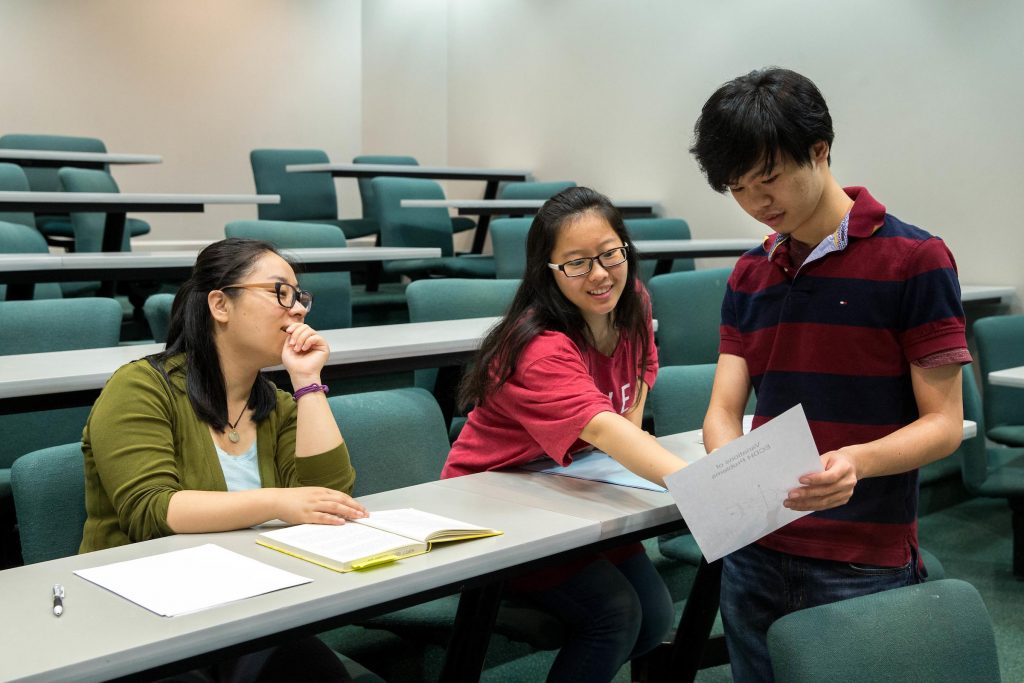Computer Science
Computer Science majors at Randolph College learn the underlying principles of computer science and gain problem-solving and analytical-thinking skills which will never fall out of date no matter where and how the field grows.
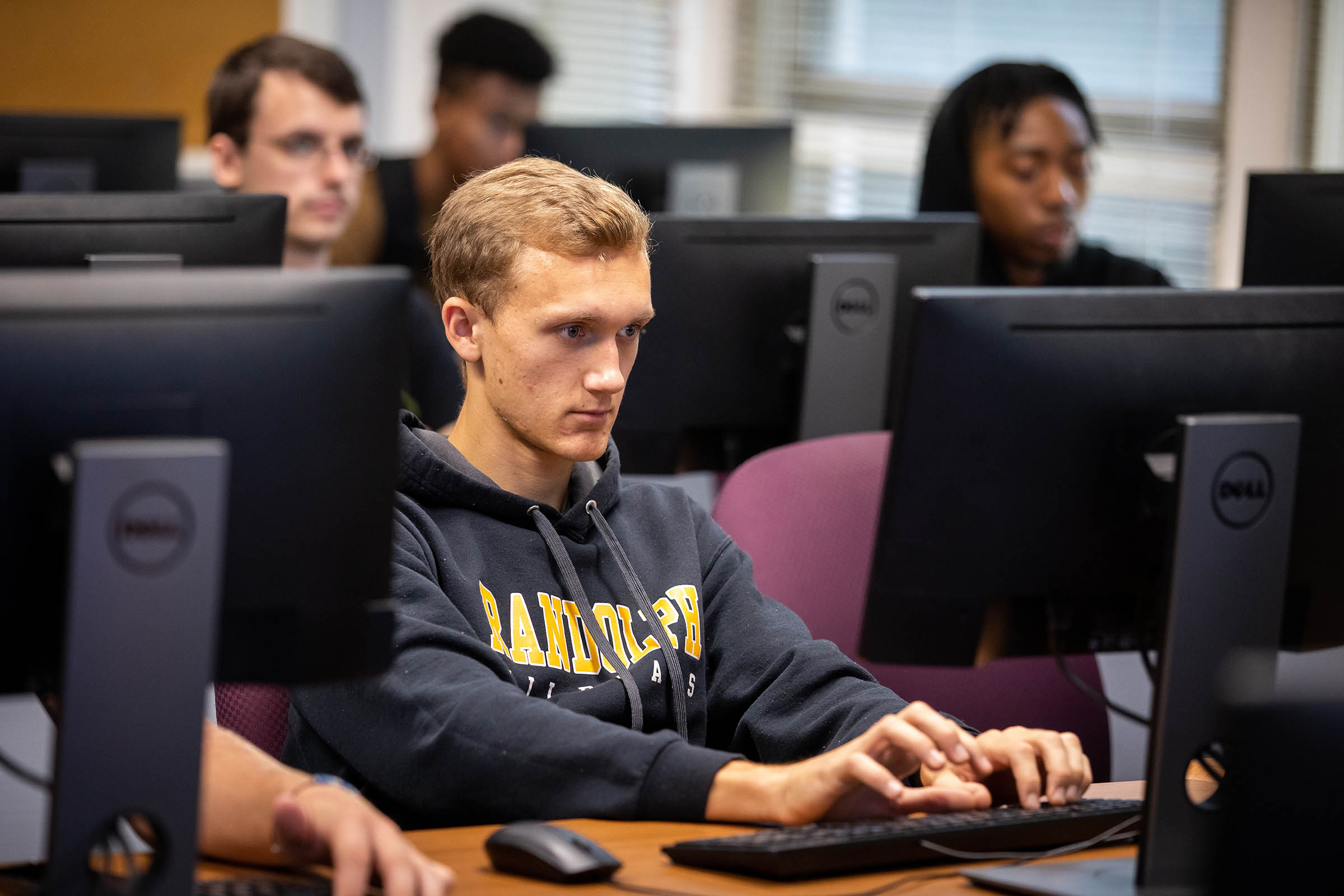
Why Study Computer Science at Randolph?
Computer science and the liberal arts have always been intimately related.
The Computer Science major is intended to give a student skills that will not fall out of date as technology advances during the course of your career.
In addition to the core computer science courses, Randolph students explore data science, cyber security, game design, and other emerging fields.
An emphasis on correlating liberal arts disciplines prepare graduates to lead the way as computer science evolves.
Mathematics courses enhance your ability to understand the underlying principles of computer science, and are of special interest to those who are involved with computer graphics, cybersecurity, or algorithmic efficiency.
Psychology and sociology inform user interfaces and social/business networking.
Business and economics prepare graduates to launch startups and provide value to existing business.
Visual arts, storytelling, music, and communication are vital to game design and entertainment.
Degrees offered
Computer Science BA
Computer Science BS
Computer Science – Cybersecurity BS
Computer Science – Game Development BS
Computer Science minor
Data Science interdisciplinary minor
Related Programs
Opportunities for Experience
Summer Research Program
Spend the summer working closely with a professor and focused on a specific aspect of mathematics.
Randolph’s intensive eight-week Summer Research Program enables students to work with professors on a research of their own design; live in a residence hall on campus, participate in on-campus summer events, attend special seminars with guest speakers; and share the progress and results of their research.
Symposium of Artists and Scholars
Modeled after a traditional academic conference, the SAS brings together students of all disciplines to share the results and highlights of the best work being produced at the College – oral presentations, readings of creative works, performances, exhibitions of student artwork, and poster presentations.
Internships
Learn by doing – in the field and on the job. The Career Development Center will help place you in positions with leading companies and organizations in your field of study.
Community Service: Randolph College SciFest
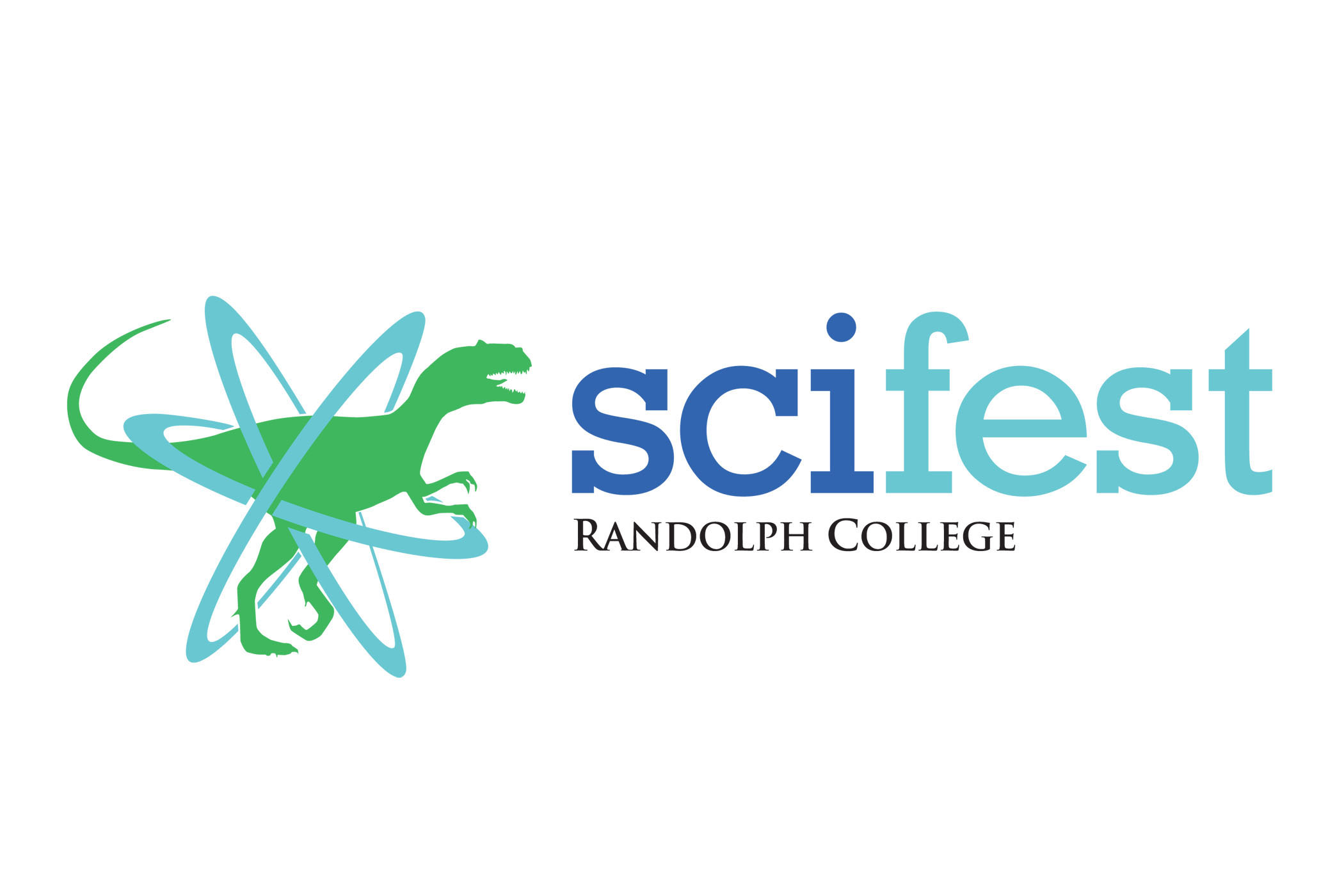
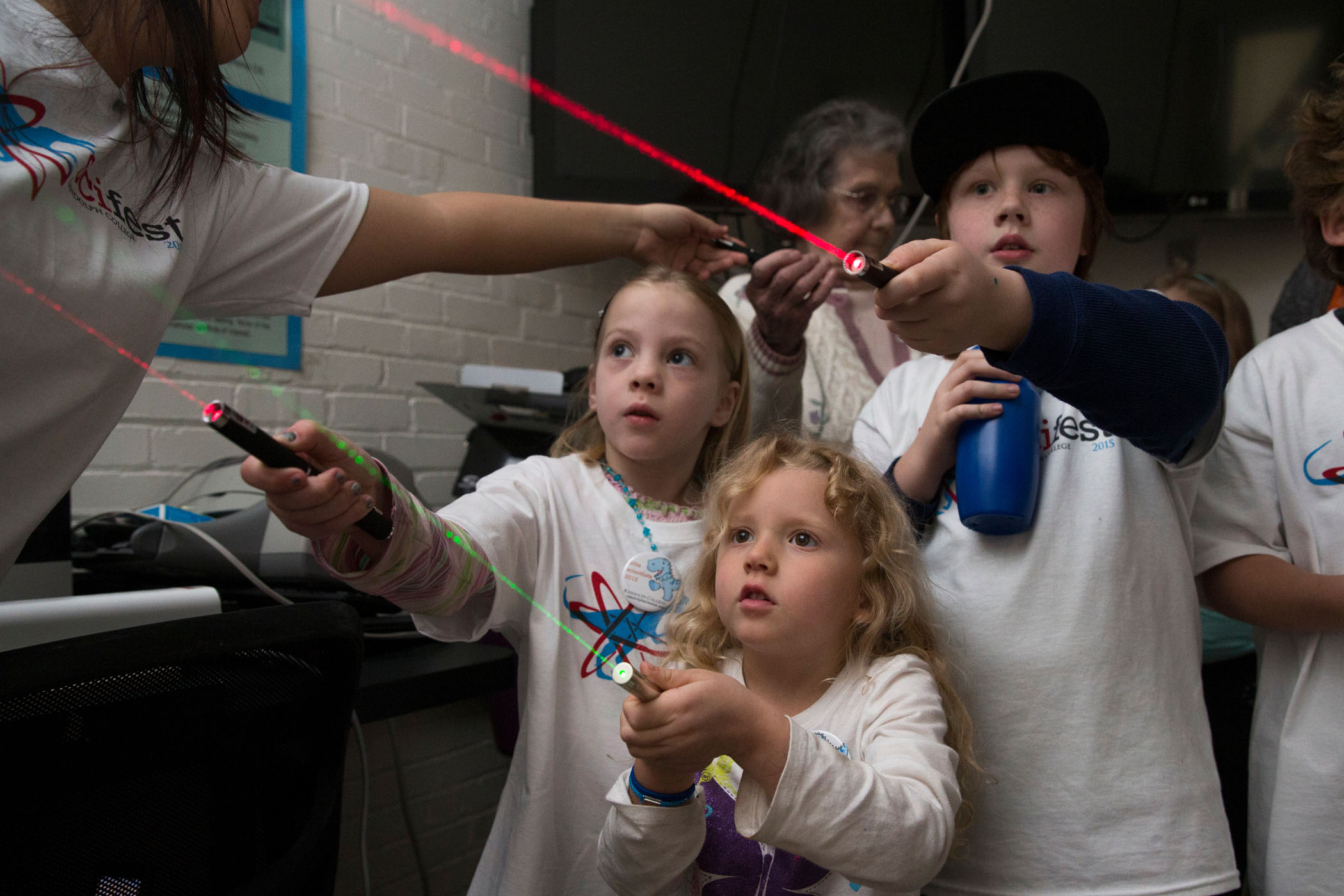
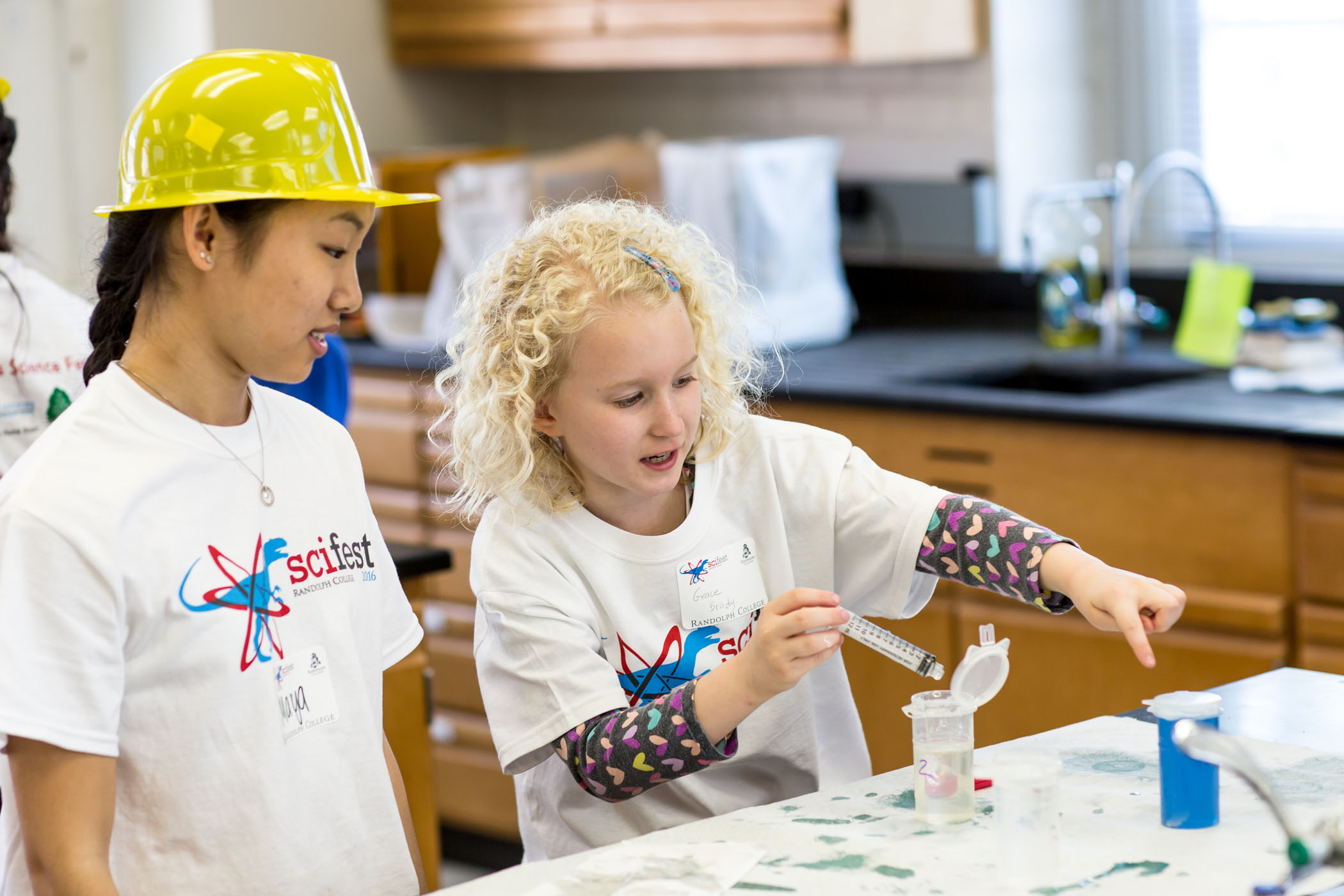
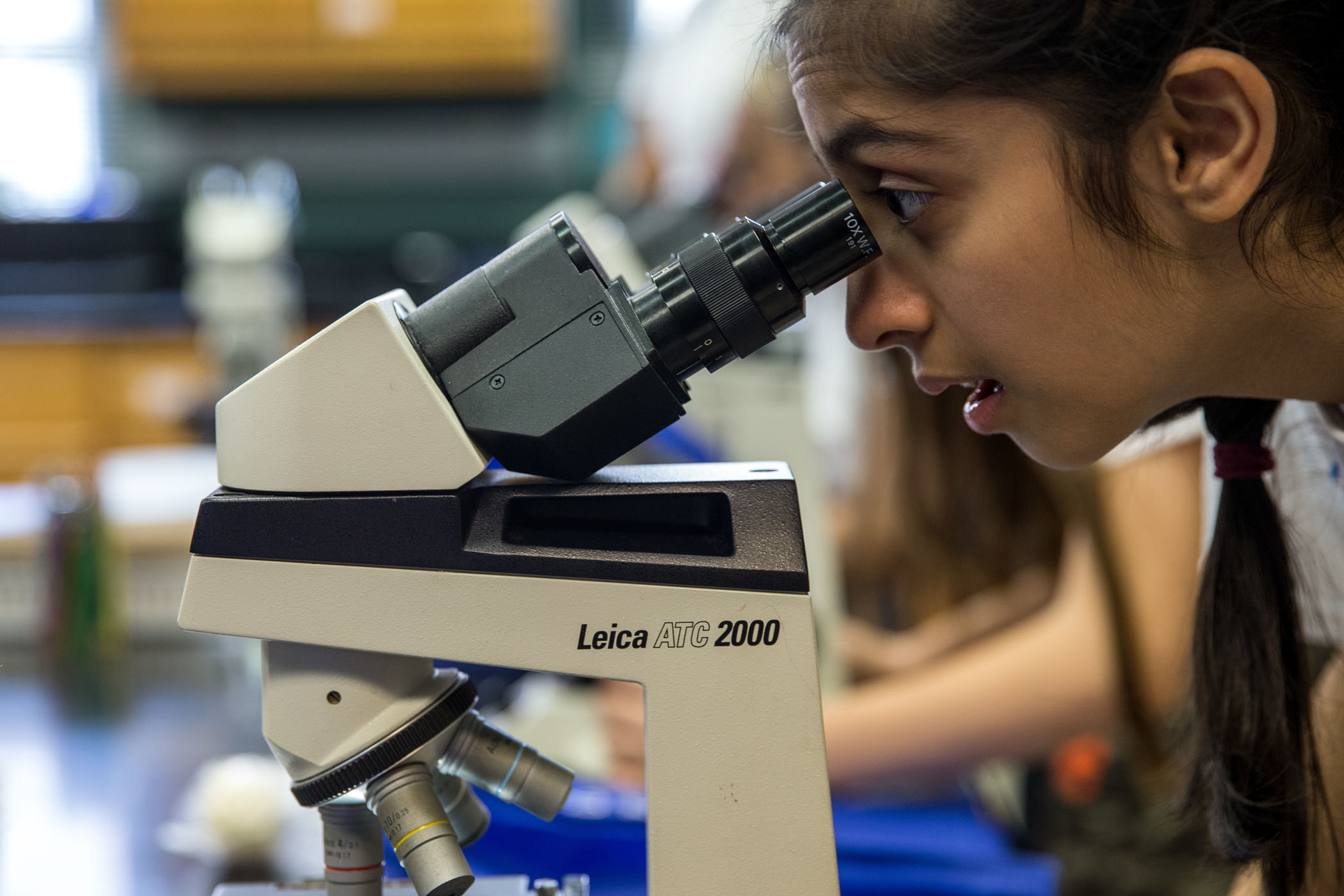
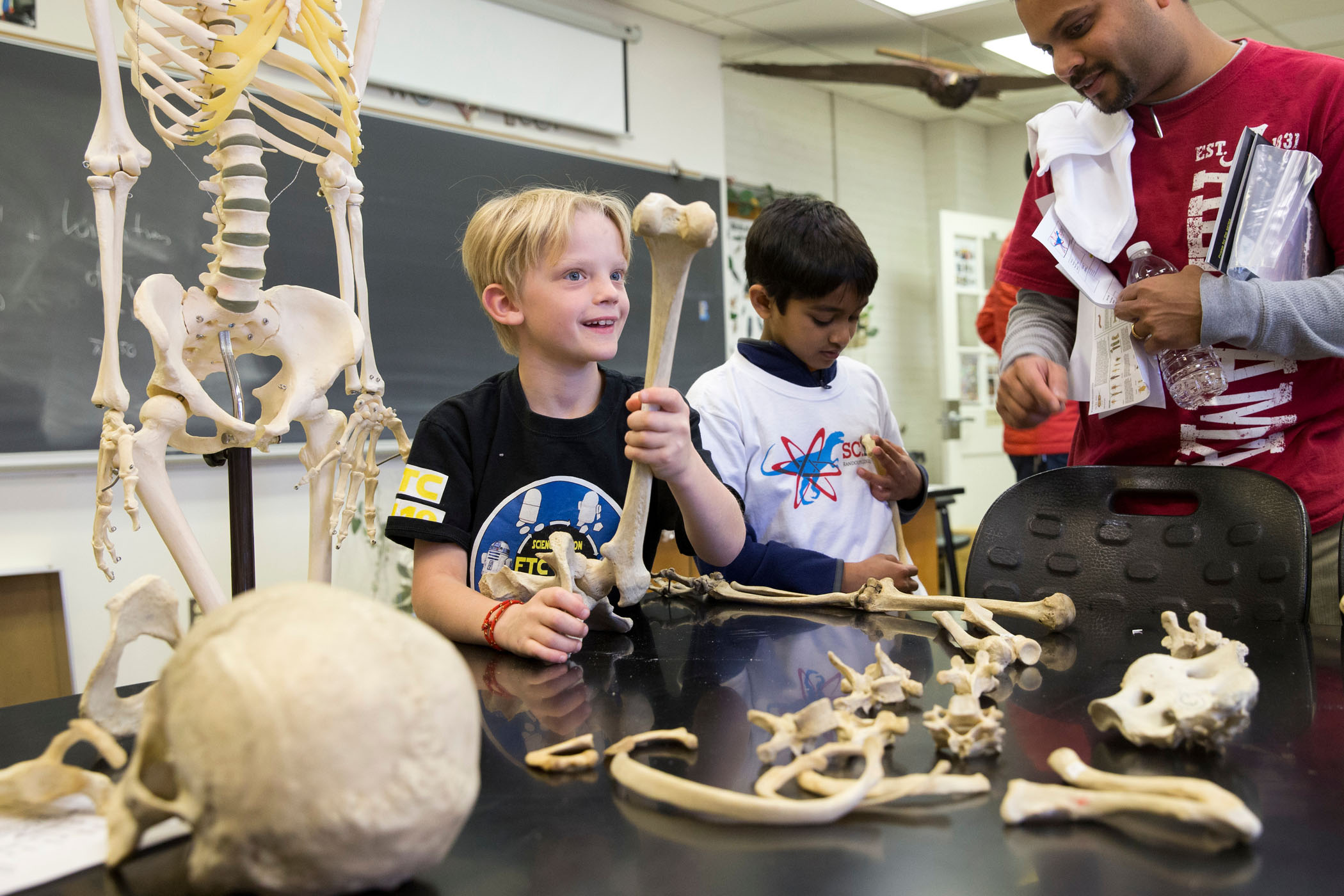
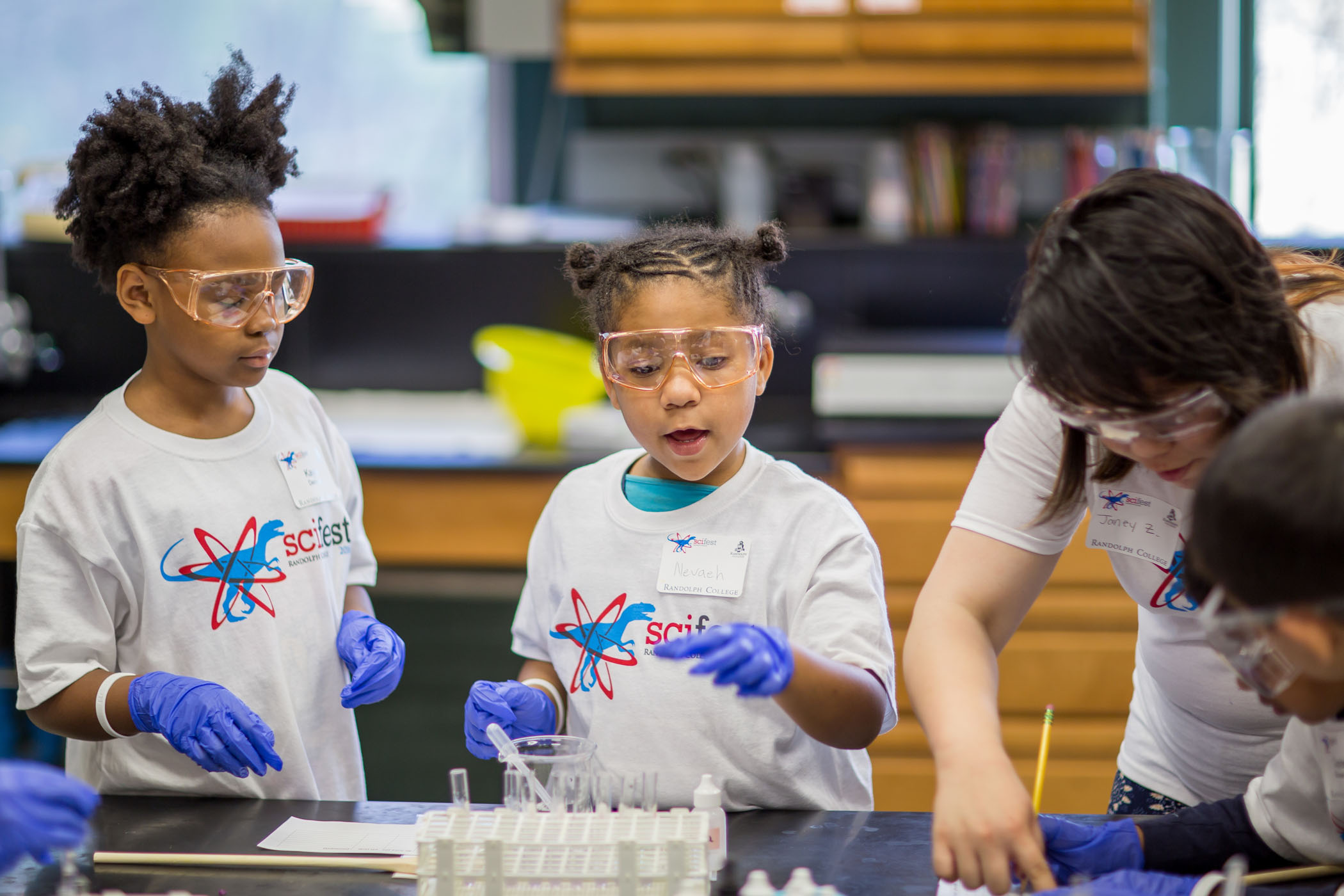
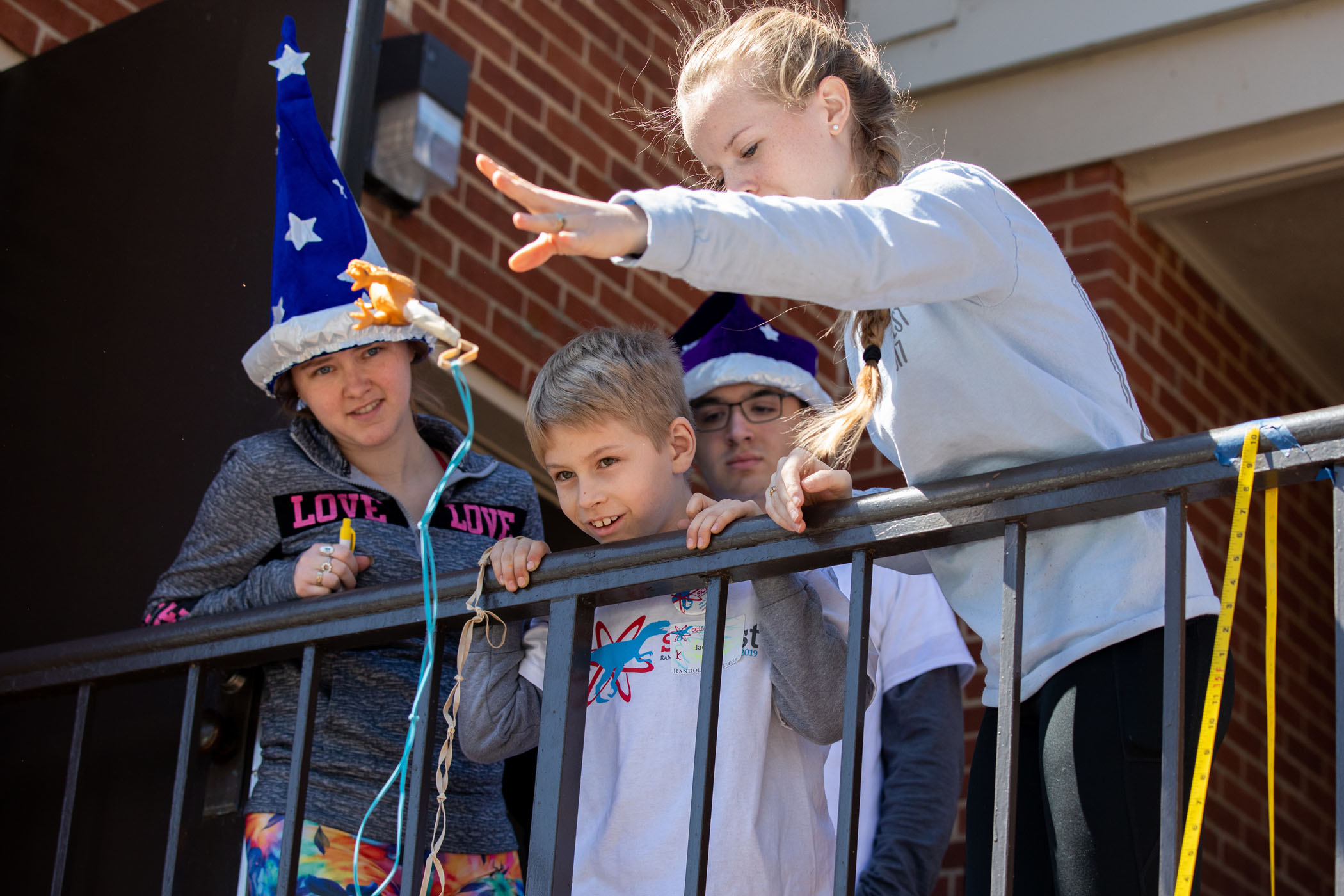
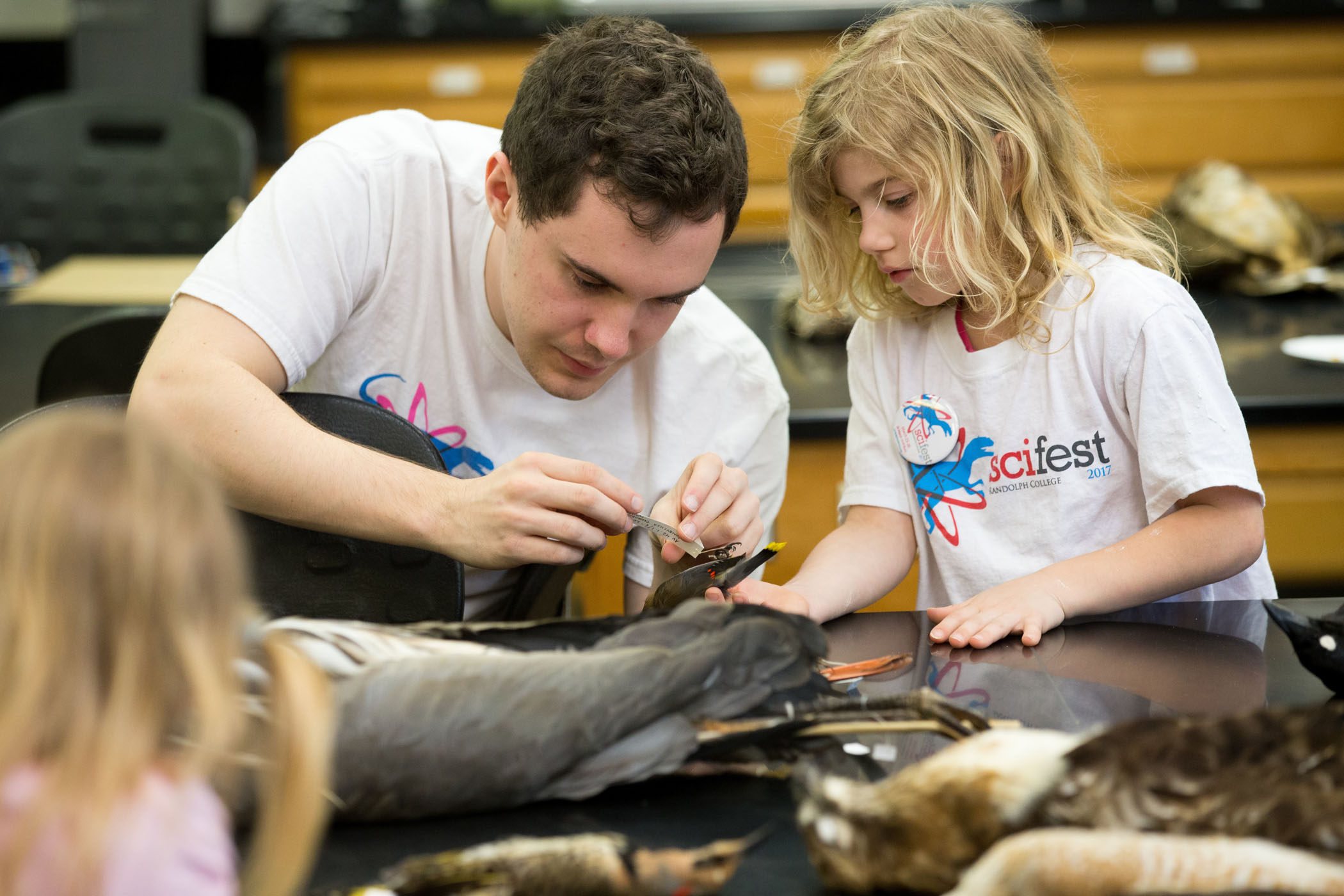
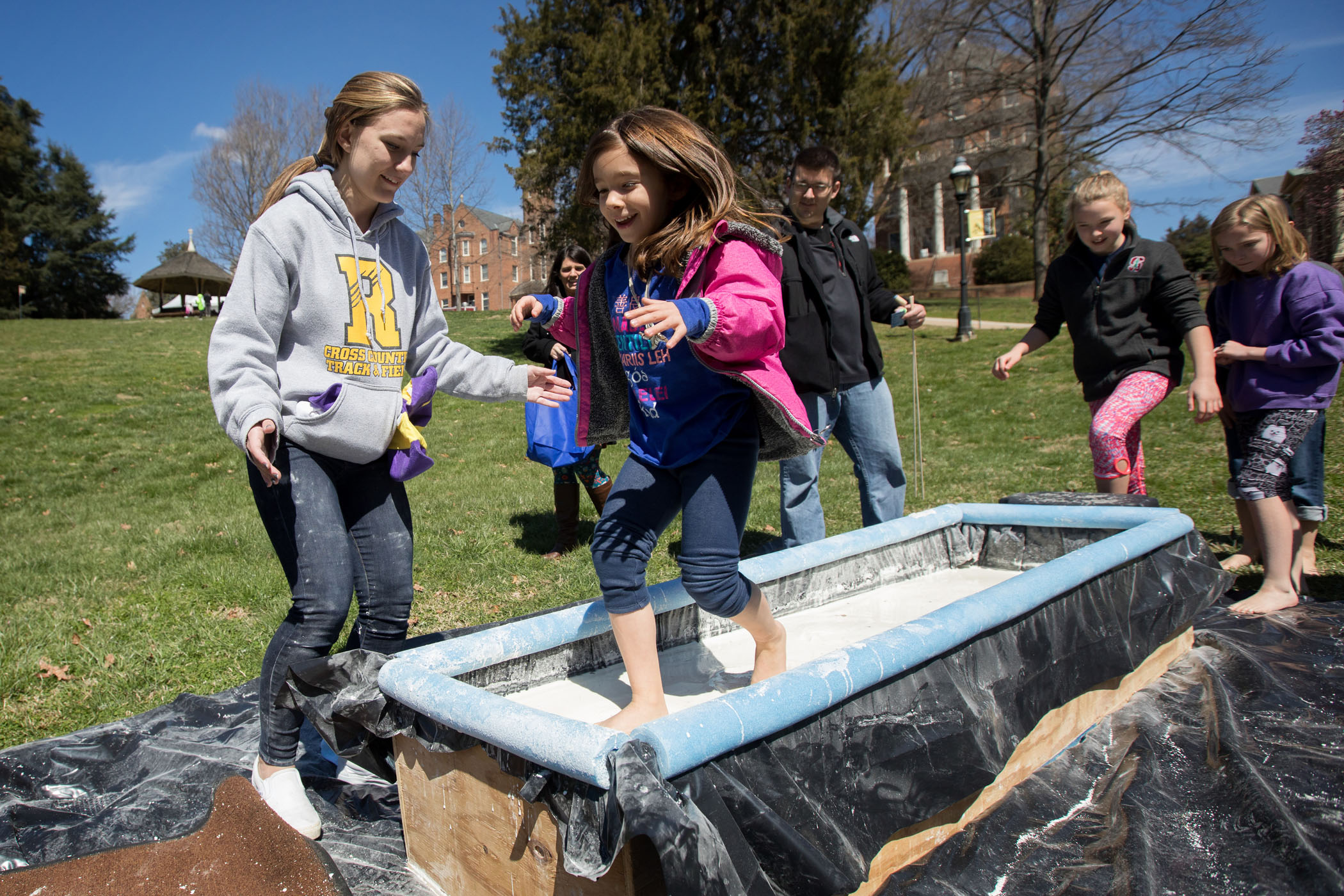
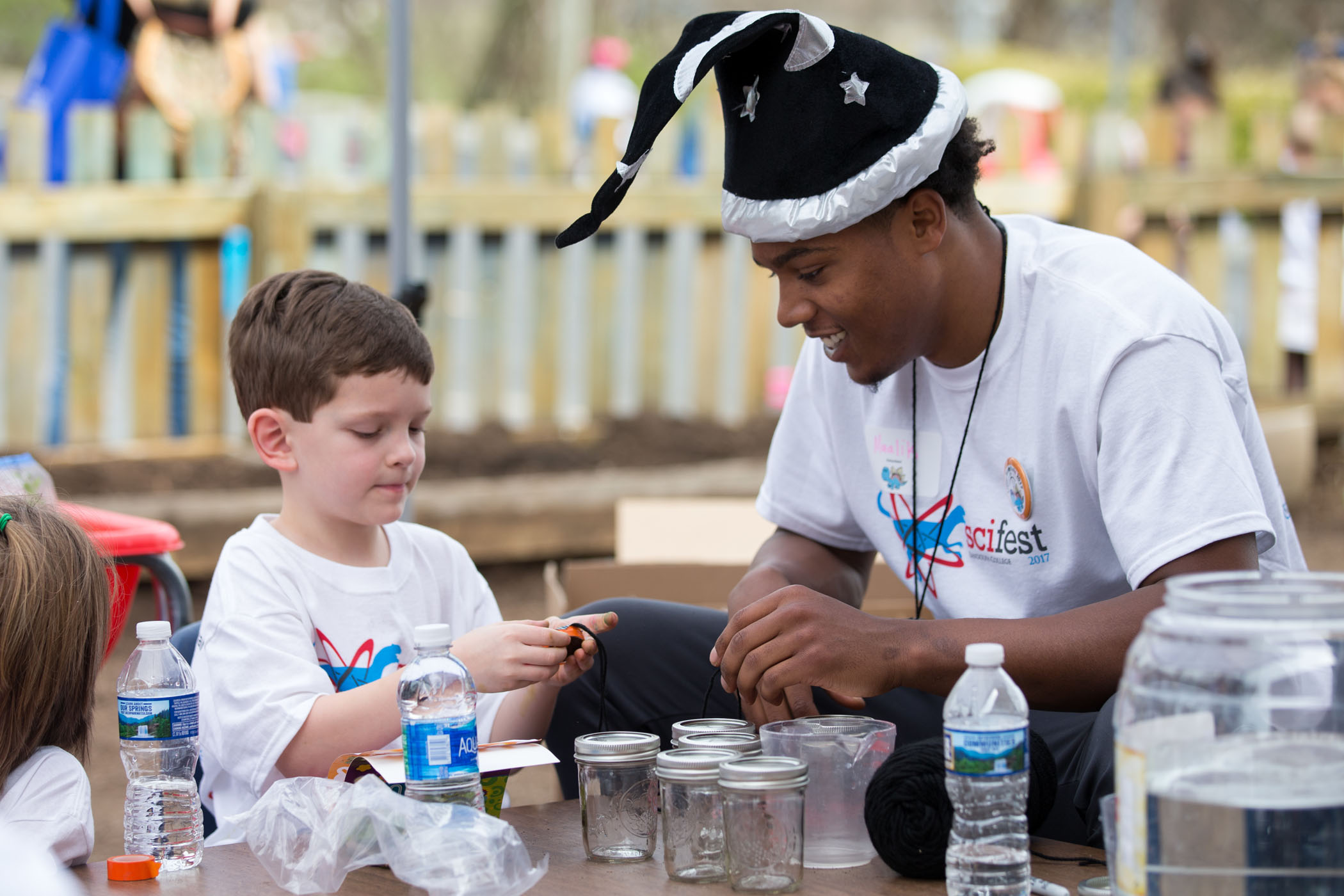
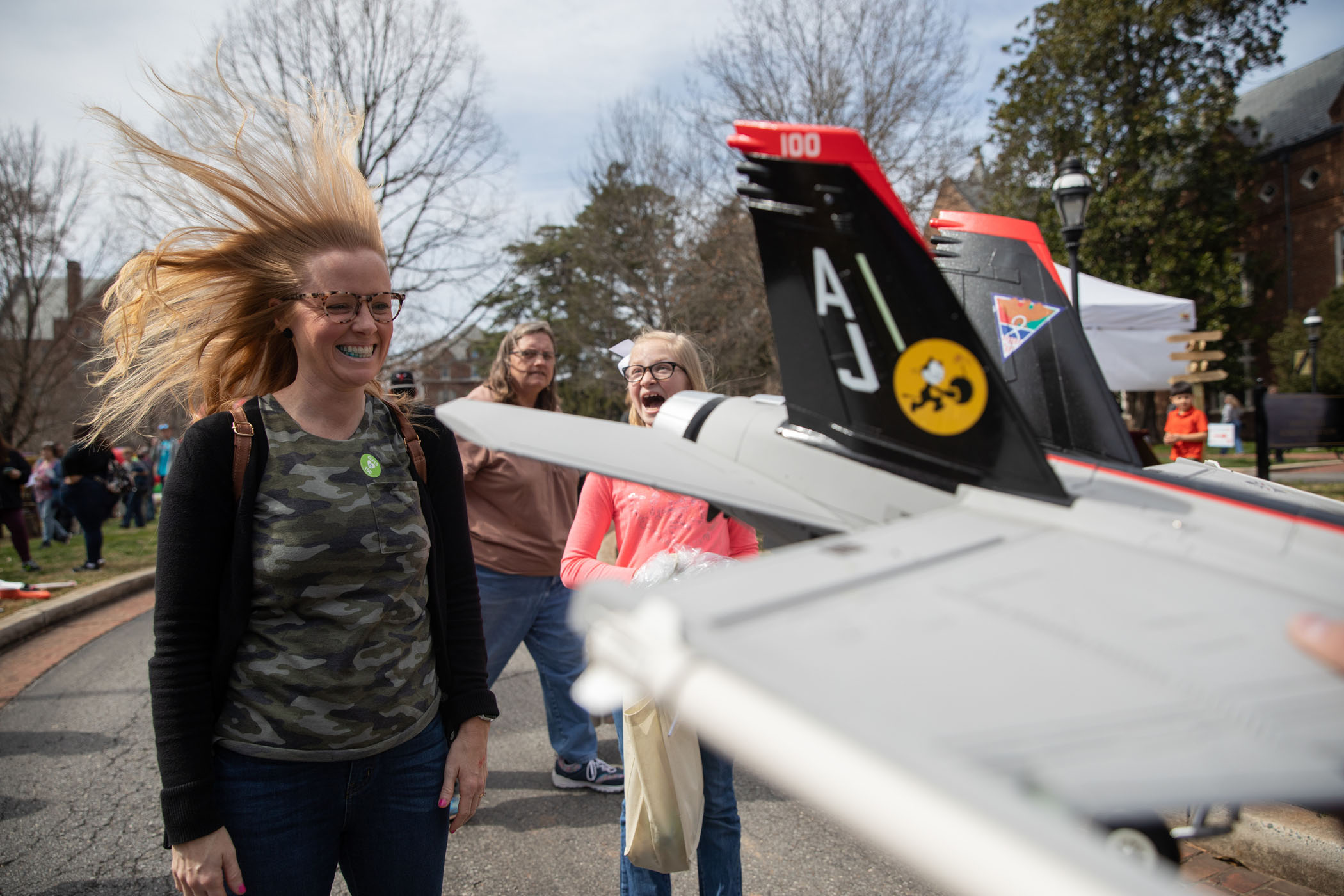
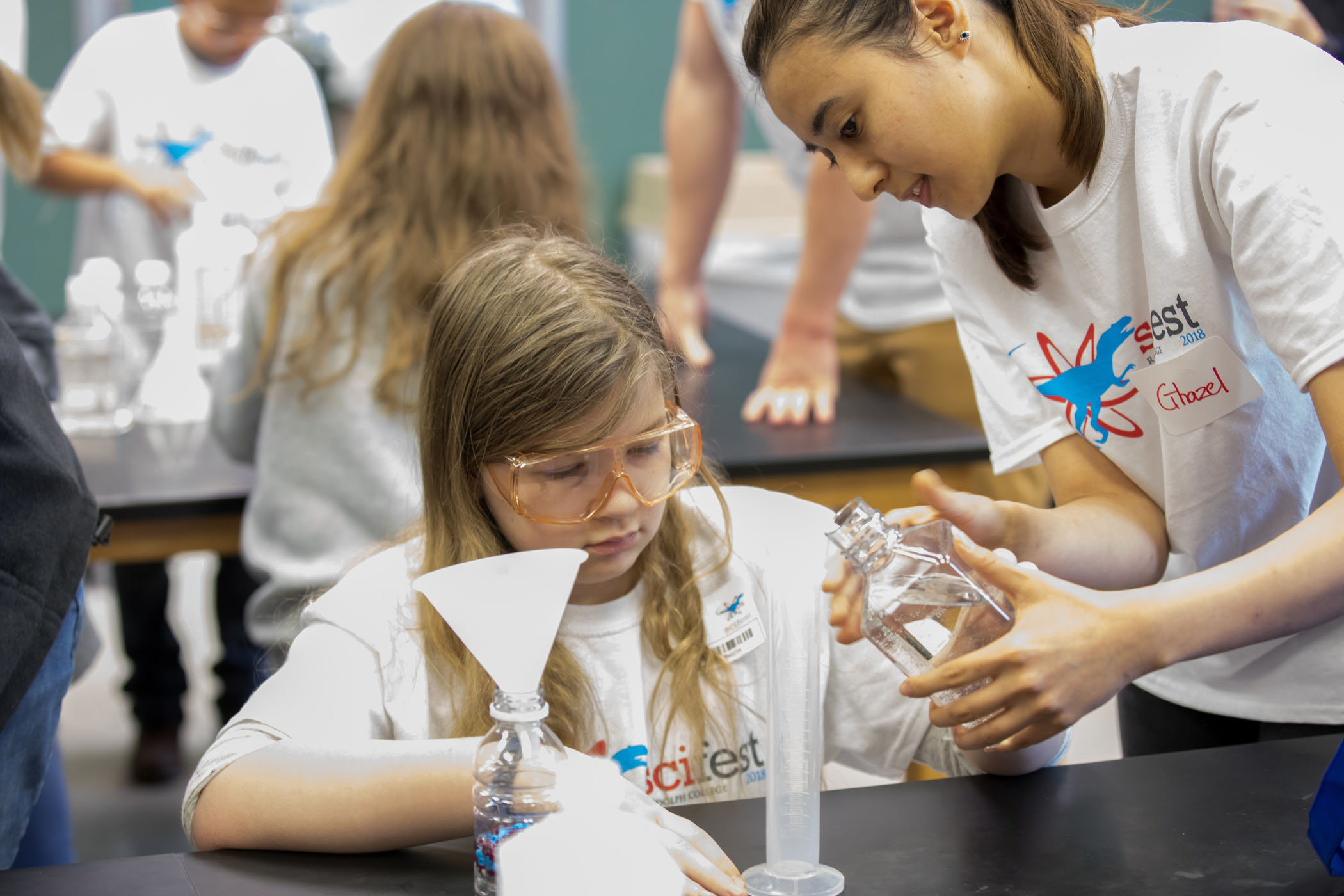
Every year Randolph College students organize and host SciFest, a 3-day science and learning festival for local schoolchildren.
Randolph student and faculty volunteers lead activities, exhibits, labs, and talks designed to get young girls and boys interested in and excited about science, technology, engineering, and math (STEM).
In addition to science activites for both elementary and preschool students, guests enjoy national guest speakers, a Pi Day fun run, women in science panel, poetry jam, LEGO league, drones and robots, petting zoo, and more.
The free event draws thousands of children and families to campus every year.
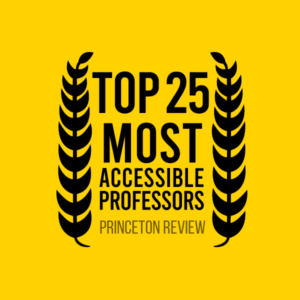
Top Ranked Professors
Randolph College’s faculty are consistently recognized as among the best in the nation. The Princeton Review ranked the College in the Top 25 for most accessible professors in the most recent edition of its flagship college guide, The Best 389 Colleges.
Randolph has been ranked in the top 25 for most accessible professors for more than a decade.
Computer Science Faculty
Only at Randolph
Randolph students can take advantage of unique programs which give them a more enriching education than can be found anywhere else.
Randolph graduates learn to think critically, solve problems and work well with others. They are prepared to succeed in all aspects of life.
Two courses per half-mester means you get to focus in and dig deep into your coursework while still having time for the rest of the college experience. Two classes. Seven weeks. Repeat.
Randolph students work with faculty mentors to explore a broad range of disciplines as they chart their academic path.
The Randolph Innovative Student Experience (RISE) program provides every student a $2,000 grant to fund research, creative work, experiential learning or other scholarly pursuits.
Research project testing the potential uses of AI in role-playing video games
The project will investigate if large language models (LLM)—artificial intelligence that understands and generates human language, like ChatGPT—can autonomously update the game instead.
Read MoreSerious about science: Students enjoy newly opened lab spaces in the midst of the Martin Science renovation
Through careful planning, students were able to use parts of Martin Science Building this fall while Phase One renovation work was being completed.
Read MoreRandolph announces three new undergraduate programs
Cybersecurity, cognitive science, and mechanical engineering will launch next fall.
Read MoreResearch project testing the potential uses of AI in role-playing video games
The project will investigate if large language models (LLM)—artificial intelligence that understands and generates human language, like ChatGPT—can autonomously update the game instead.
Read MoreSerious about science: Students enjoy newly opened lab spaces in the midst of the Martin Science renovation
Through careful planning, students were able to use parts of Martin Science Building this fall while Phase One renovation work was being completed.
Read MoreRandolph announces three new undergraduate programs
Cybersecurity, cognitive science, and mechanical engineering will launch next fall.
Read More